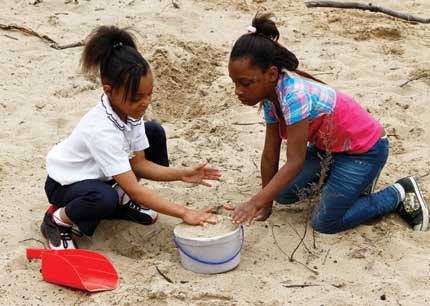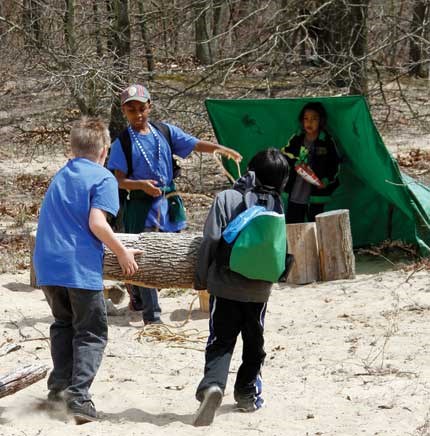Last updated: January 24, 2025
Article
Nature Play Zones
Playgrounds can be so much more than just seesaws, swings, and jungle gyms. Natural environments provide opportunities for all ages to play and have fun!

NPS/Katrina George
Structured outdoor play, such as organized sports or games, keeps kids active and boosts physical health, however, unstructured outdoor play is even more important. Socially, children can learn flexibility, cooperation, and self-awareness from unstructured play. Emotionally, unstructured play can increase happiness and decrease stress and aggression. Nature play zones are created to endorse unstructured play in an outdoor setting.
What are nature play zones?
Nature play zones are outdoor recreational areas designed for the promotion of physical, mental, and social health for children.

NPS/Jeff Manuszak
How do nature play zones improve health?
Studies have shown that outside physical activity directly correlates with a decrease in childhood obesity. Structured outdoor play, such as organized sports or games, keeps kids active and boosts physical health. However, unstructured outdoor play is even more important. Unstructured play encompasses the health benefits of physical, emotional, and social growth. Socially, children can learn flexibility, cooperation, and self-awareness from unstructured play. Emotionally, unstructured play can increase happiness and decrease stress and aggression.Who can benefit from nature play zones in our parks?
People of all ages and abilities can enjoy the health benefits of parks.
The National Park Service has identified nature play zones as a Healthy Parks Healthy People promising practice. Healthy Parks Healthy People promising practices are science-informed programs and policies in parks that can help people lead happier, healthier, more productive lives.
